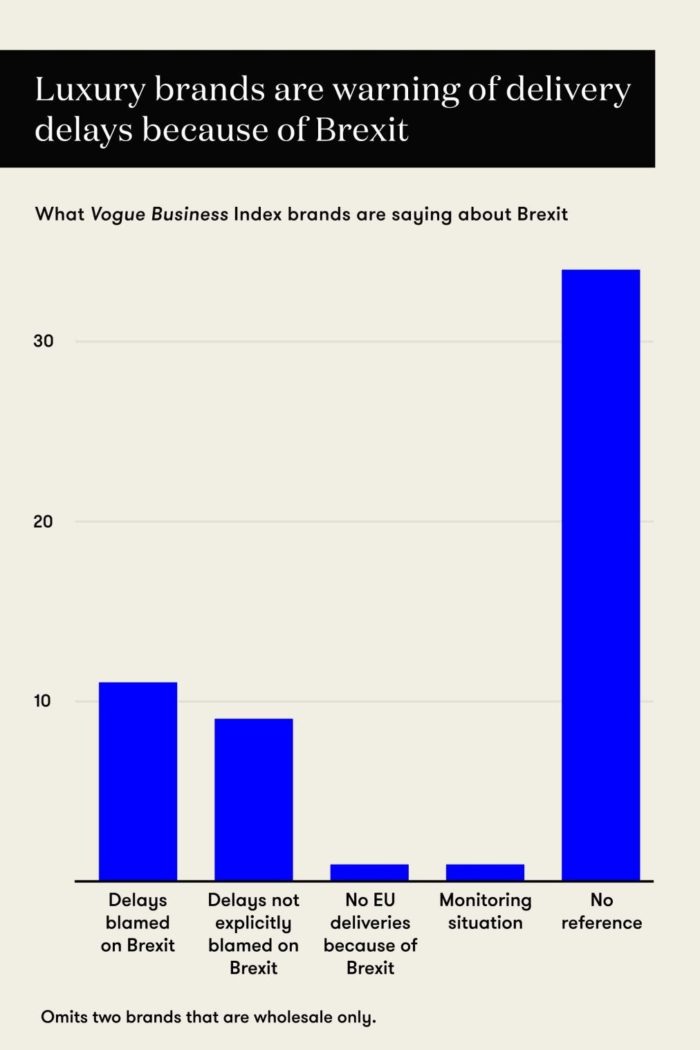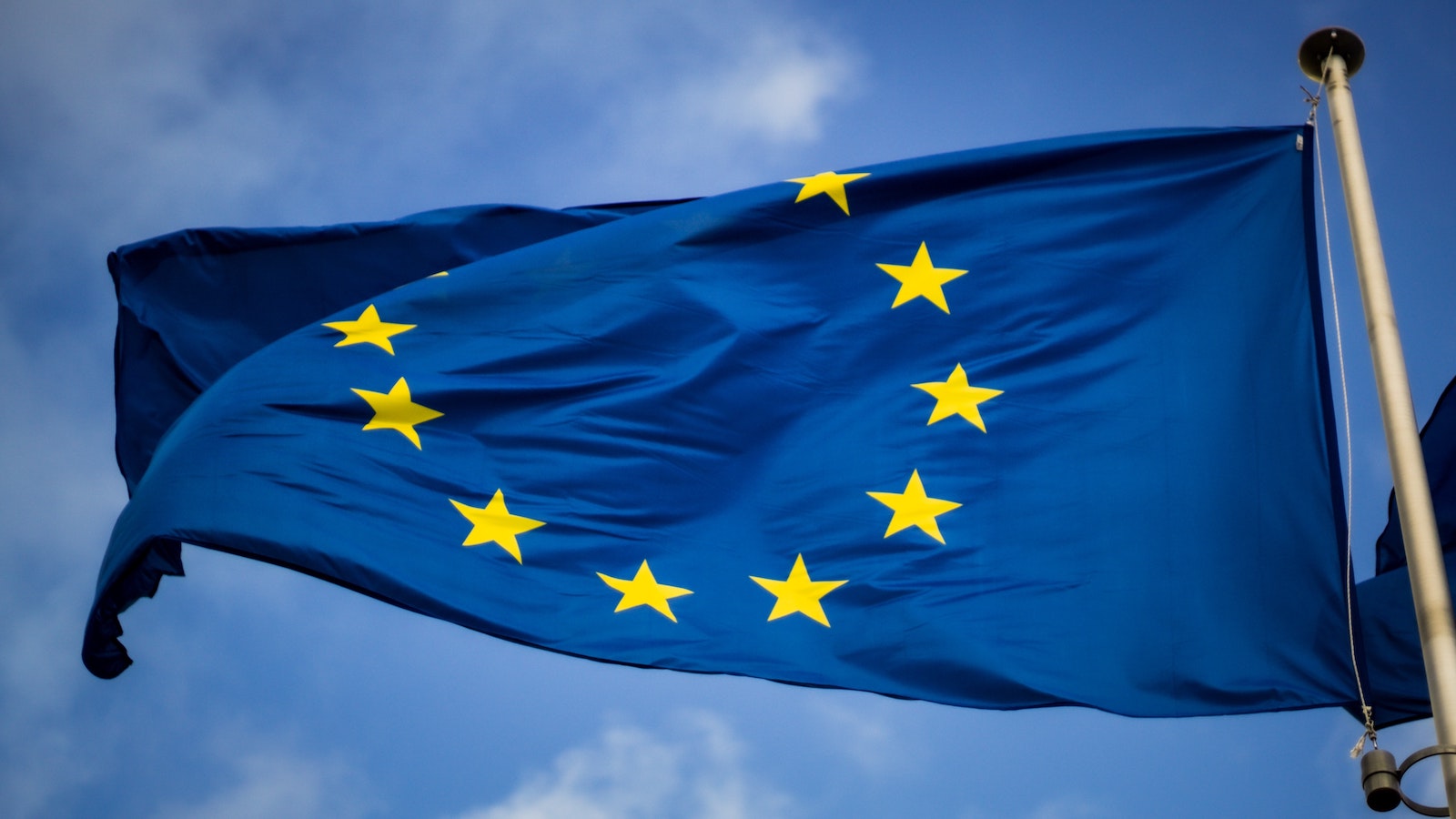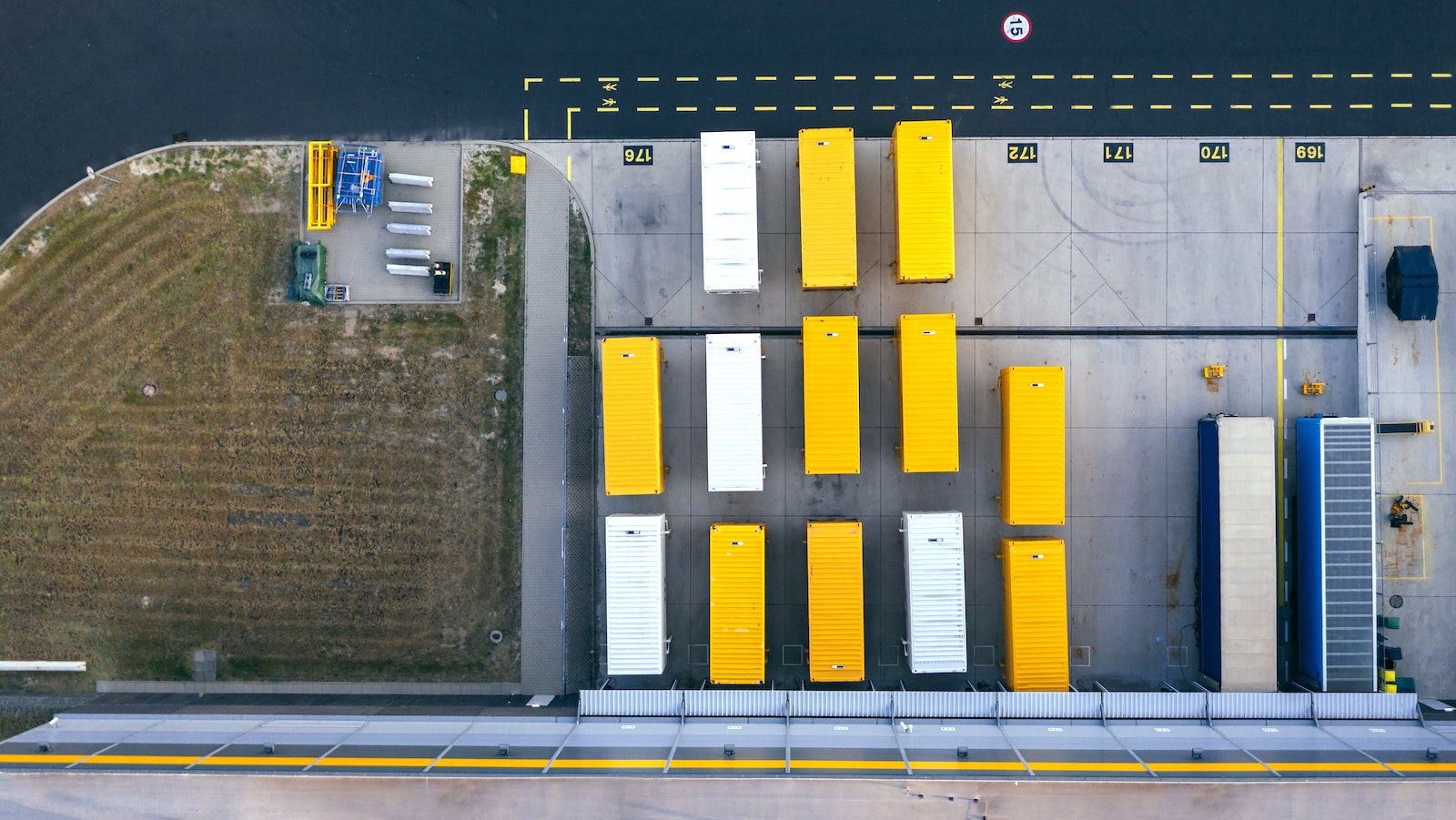Table of Contents
** Minutes
Brexit’s impact on the ecommerce industry
Challenges ecommerce retailers face post-Brexit
6 ways to get your store ready for Brexit
How partnering with a 3PL can help protect ecommerce from the impacts of Brexit
The UK’s exit from the European Union (EU) will no doubt have a major impact on the European ecommerce market.
With new regulations, customs, and import duties, online retailers will have to rework their strategies to prepare for these changes.
Whether you’re already selling in Europe or looking to expand into Europe, this Brexit ecommerce guide will help you manage through the changes and prepare your business.
What is Brexit?
Short for “British exit,” Brexit refers to the withdrawal of the UK from the EU. This means that the UK will no longer be a part of the single market or the customs union that all EU countries belong to.
Although Brexit was officially in January 2020, there was an 11-month-long transition period while both sides worked out the specifics of the departure. They finally came to an agreement on 24 December 2020, which came into effect on 1 January 2021.
Note: Northern Ireland will have a dual-status post-Brexit, meaning they will take part of UK customs territory but also be part of the EU single market for VAT purposes.
Brexit’s impact on the ecommerce industry
While everyone expected the ecommerce industry to face some challenges after Brexit, it came as a shock to see a 68%plunge in UK-to-EU exports a month following the changes. Many UK brands have had EU customers refuse their parcels due to the added cost of customs and duties, according to The Drum.
UK brands importing goods from EU countries have seen rising shipping costs and times. Some EU-based brands and suppliers have even stopped selling into the UK due to the added cost to service the market.
However, many non-UK ecommerce stores may not be so quick to end their service to the UK, as they’d lose out on many loyal customers; With the UK ecommerce market worth more than £693 billion, it’s not something online retailers would want to lose out on.
Moreover, 36%of British online shoppers buy from other countries. And there’s a good chance that they’ll continue to buy from foreign ecommerce stores even after Brexit.
Challenges ecommerce retailers face post-Brexit
The post-Brexit ecommerce landscape presents several challenges for retailers. Here is an overview of the major impact it will have.
Drop in ecommerce sales
The extra charges and costs to ship goods into the UK have resulted in a decrease in ecommerce sales. According to an Eskenzi survey:
- 34% of UK consumers have stopped buying from EU-based retailers.
- 24% of younger consumers aged 16-24 cited the increase in cost as a reason why they stopped shopping from European-based brands.
Slower delivery times
Customer packages being shipped to the UK from EU countries now have to go through customs checks, which means they’ll be held up longer before they’re able to reach their destination.
As a result, online retailers are struggling with slower last-mile delivery. For instance, around 20 of 57 e-luxury brands in a Vogue Business Index survey directly blame Brexit for causing major delivery delays.

New tariffs and VAT
With new value-added tax (VAT) charges, tariffs, and additional handling fees, shipping couriers are also increasing their rates.
Royal Mail is adding a £8 to cover the customs clearance process, while TNT Express, an international courier delivery services company, is adding £4.31 on all EU-to-UK shipments and vice versa.
Until a free deal is reached (if it ever will be), online retailers will have to bear the brunt of increased international shipping costs.
6 ways to get your store ready for Brexit
Although the post-Brexit ecommerce shipping situation is still confusing and challenging (and subject to change), retailers can make changes to provide transparency for their customers.
To adapt to the inevitable, here are six ways you can adjust your international ecommerce selling (and more specifically, ecommerce Brexit) strategies.
1. Talk to your suppliers
The introduction of custom charges, tariffs, and other trade barriers will have a significant impact on your existing ecommerce supply chain.
One of the first things to do is talk to your suppliers and see how Brexit will affect supply chain planning, including production lead times and other aspects of your logistics operations.
Look for opportunities to mitigate any risks in the process that could result from Brexit-related changes.
In some cases, you might even need to consider finding a UK-based supplier to keep your services running smoothly within the UK.
2. Distribute your inventory
While you have a general idea of shipping durations, customs lead times are unpredictable. You never know if the item will get held up in customs for 2-3 days or more than a week.
This makes international logistics extremely tricky, with possible delays in shipping. So it helps to have a unified fulfilment network to streamline the process.
This involves distributing your inventory across multiple warehouses (including locally in the UK and EU — more on that below), which will allow you to fulfil orders from the nearest domestic retail fulfilment centre.
3. Find fulfilment centres in the EU
Whether your business is based in the UK or outside of the EU, to make order fulfilment management smoother for EU-based orders, you might want to bulk ship inventory to a fulfilment centre located within the EU.
This allows you to quickly and seamlessly fulfil orders in their respective regions. This way, it’s easier to expand to the EU market without the headache of dealing with cross-border shipping for every EU-based order.
Many third-party logistics (3PL) providers like ShipBob offer fulfilment locations across the globe to fulfil domestic orders within the EU and other locations including the UK, so you can better serve both EU- and UK-based customers.
4. Update your shipping policies
Since shipping is now subject to higher taxes, make sure you update your shipping policy across your online stores for your customers to be well-advised.
If you choose a Delivered at Place (DAP) option where customers bear the cost of importing the goods, make it clear that your buyers will be responsible for paying any additional duties and import taxes.
If you opt for Delivered Duty Paid (DDP), where you bear the responsibility of any import costs, your policy should state that you’re collecting and paying the fees on behalf of your customers.
5. Offer multiple shipping options
New VAT and tariffs also mean you’ll likely have to change your shipping fees and options.
Although expedited shipping from the EU to the UK (or vice versa) will cost a lot more than before Brexit, you never know if some customers are still willing to pay for it.
Some customers won’t mind waiting a bit longer for their order if it means affordable shipping. Others may need to get their order as quickly as possible and don’t mind the extra fees to get expedited shipping.
Make sure you offer multiple shipping options to provide your customers with the freedom to choose between shipping methods depending on their needs.
Lastly, don’t forget to display estimated shipping dates or transit times for each method.
6. Prepare your customer service team
As you transition into this new shipping method, make sure you have your ecommerce customer service team ready to support your customer with any questions they may have.
Your customers may have plenty of questions about customs lead times, import documentation, and import fees. Your team should be prepared to answer all of these questions as accurately as possible.
If you’re just expanding into the EU market, also make sure your customer service team is available during EU business hours to help support your EU customers (or taking that into consideration for mechanisms like live chat).
How partnering with a 3PL can help protect ecommerce from the impacts of Brexit
ShipBob is a global 3PL that can easily fulfil your orders post-Brexit and cater to customers across the world with international fulfilment capabilities.
Here is an overview of how ShipBob can protect your global brand from the impacts of Brexit.
EU and UK fulfilment centres
ShipBob has a global fulfilment network including spanning across the Europe Union and the UK. This helps ecommerce retailers keep their shipments moving seamlessly.
SuperSpeed Golf, for instance, anticipated more cross-border shipping issues even when Brexit was still pending.
They realised it would no longer be viable to service their massive customer base in the EU from their distribution point in London.Since they wanted a fulfilment centre in the EU, they reached out to ShipBob to take care of their European orders.
“We had a distribution point in the UK in London, but anticipated that cross-border shipping issues would become more prevalent with Brexit pending, as we realised a good chunk of our customer base in the EU wouldn’t be able to as easily receive shipments from the UK, as it may be more expensive with longer shipping times.
We reached out to ShipBob, as we became more concerned with Brexit and wanted a fulfilment centre in the European Union.
Beyond taking care of all of our mainland European orders, we quickly became very impressed by ShipBob’s transparency, simplicity, and intuitive dashboard.”
Harley Abrams, Operations Manager of SuperSpeed Golf, LLC
Fast and efficient order fulfilment
ShipBob lets you distribute your inventory across multiple fulfilment centres so you can quickly process orders and get them out the door faster.
With an international 3PL like ShipBob, global online brands no longer need to work with multiple 3PLs to meet the needs of international customers.
Businesses can operate smoothly from ShipBob’s fulfilment centres in the EU and the UK (click here for the most up-to-date list of ShipBob locations).
ShipBob has helped companies like Black Claw scale their business internationally by centralising fulfilment from three different 3PLs in three countries to one central, unified solution.
“ShipBob has multiple fulfilment centres and all locations filter back into one centralised warehouse management system, so everything is under the ShipBob umbrella.
By distributing our inventory across these countries and regions, all of our customers are able to get their orders much faster while paying reasonable domestic shipping rates.”
Wes Brown, Head of Operations at Black Claw LLC
Cost savings
ShipBob’s solutions also address the major cost-related challenges presented by Brexit. With new tariffs and VAT increasing the cost to service the UK from the EU, retailers now have to prepare for a significant increase in shipping prices.
But with the efficient fulfilment process that ShipBob offers through a global fulfilment network, you can mitigate these expenses more easily.
For health brand Juspy, picking, packing, and shipping orders through ShipBob cost the same as shipping the orders themselves. And it’s even cheaper to ship to certain countries through ShipBob’s fulfilment networks.
“We just got started in ShipBob’s EU fulfilment centre, and will next expand into their London facility to continue building momentum in the UK.
When I was shipping orders myself, what I paid per order is the same price now to pick, pack, and ship orders through ShipBob.
It’s even much cheaper to ship to certain countries, which used to take ages and often got lost with localised post here.
Now, I have very transparent pricing, and I can easily run and plan my business.”
Leonie Lynch, Founder & CEO of Juspy
ShipBob also partners with SimplyVAT.com to offer merchants a full VAT solution when entering the EU, UK, and Canadian markets. You can learn more about the program here.
To learn more about ShipBob can help transform your business into a global brand and navigate the Brexit ecommerce landscape, click the button below to inquire about our international fulfilment capabilities.
Brexit ecommerce FAQs
Let’s answer the top questions regarding the Brexit impact on ecommerce:
How will Brexit affect couriers?
Couriers may take longer to deliver shipments as packages coming in from EU countries to the UK (or vice versa) will have to go through customs clearance. This also gives them more paperwork to sort out, which means additional work.
Will Brexit affect dropshipping?
Brexit has resulted in higher shipping prices and customs hold-ups for dropshippers. On top of this, dropshippers based in the UK will now have to pay VAT at point-of-sale. This will compel them to increase their prices to maintain their profit margins.
How will Brexit affect online retailers?
Online retailers are likely to see a drop in sales as the extra import costs may discourage many shoppers from cross-border online shopping. In addition, the longer shipping times will be another major challenge that online retailers have to address. You may be able to navigate around this by partnering with a global fulfilment company like ShipBob to fulfil orders locally in the EU and UK respectively.
Will Brexit affect international deliveries?
Delayed shipments, customs hold-ups, and increased shipping fees are some of the biggest ways Brexit will affect international deliveries, unless you store inventory and fulfil orders from UK countries and EU countries to better service those local populations.



